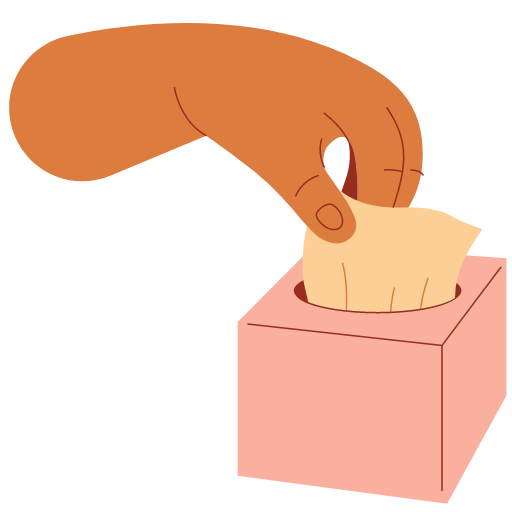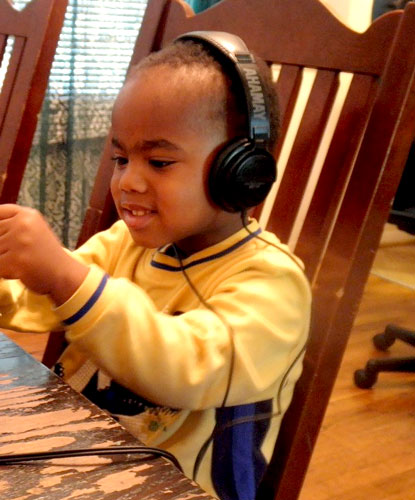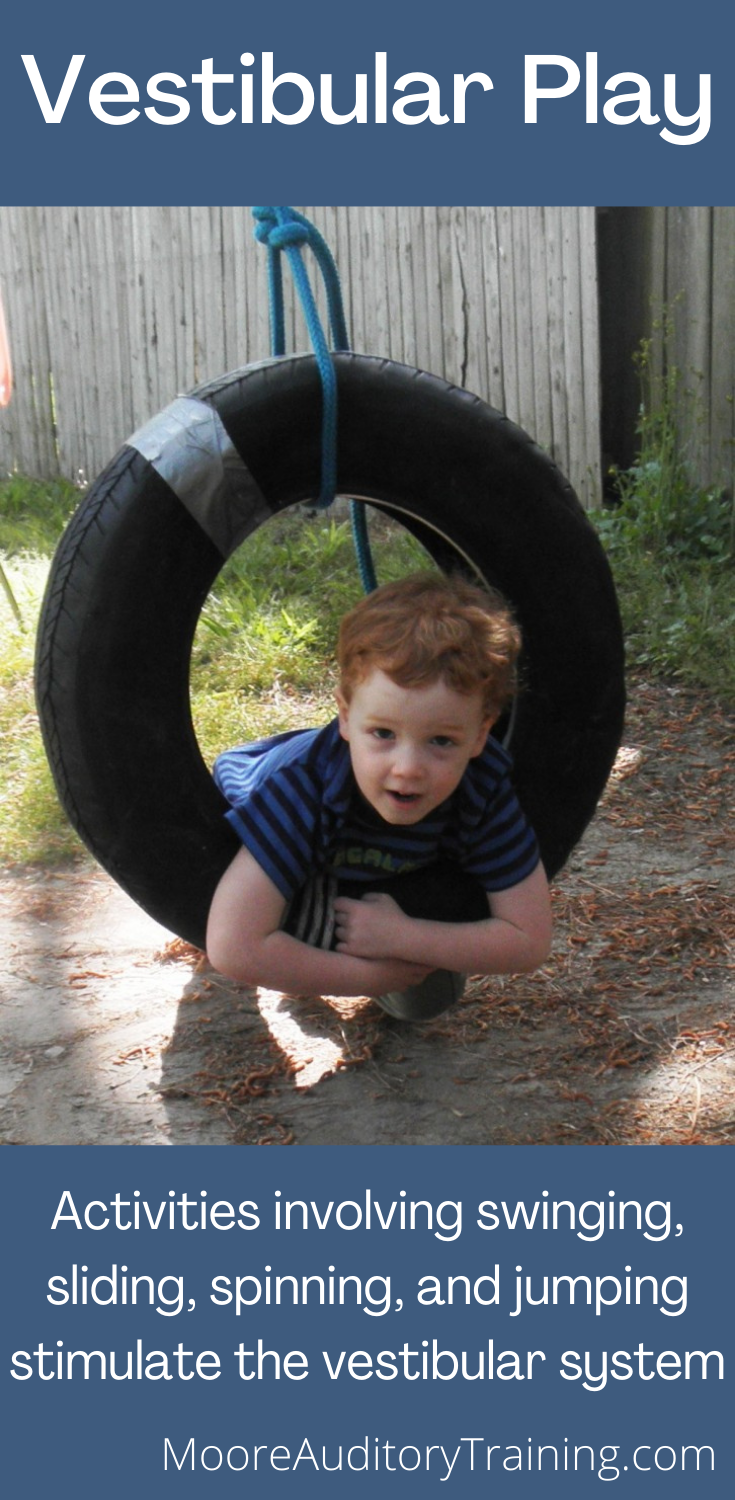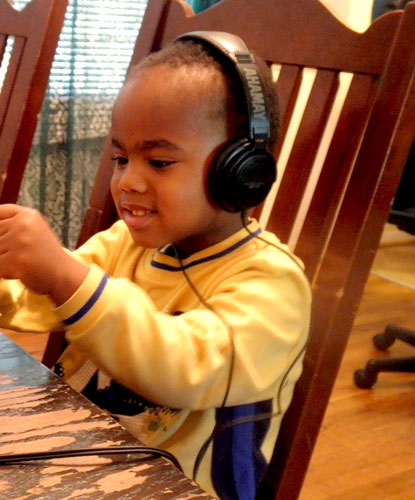Sound Intolerance
Do you avoid noisy places or cover your ears when there are loud sounds?
Is it difficult to listen in noisy environments?
Sound intolerance, also called sound sensitivity, rarely indicates excellent hearing. Sensitivity to sounds occurs when the middle ear muscles and auditory neural pathways are too weak to protect the cochlea from harmful sounds.
Are Sounds or Speech Uncomfortable?
An insightful report, your Moore Auditory-Visual Questionnaire Report, shares the intensity of behavioral difficulties related to specific areas of concern.
Need Help, Next Step? Call Cheri
Using hearing test results, Cheri Moore helps children and adults improve their ability to respond to auditory integration training and maintain progress.
It is an honor to work with Cheri Moore on her journey with auditory integration therapy. She has shown a consistent desire to go above and beyond in every aspect of her practice and training. Cheri’s quest for greater understanding and her thirst for knowledge are demonstrated daily. It is a pleasure to work with a professional who is so eager to learn and apply new information to help her clients reach their best possible outcomes.
Kathy J Harvey-Jones, MsEd, Audiology, BC-HIS
Video
Sadly, the young boy covering his ears is experiencing physical discomfort in his ears. Sometimes, it is normal for young children to cover their ears. Watch the video to learn when help is needed to improve sound tolerance.
Development of Sound Intolerance
The development of sound intolerance occurs at any age. Poor ear, nose, and throat health increase the risk of experiencing diminished hearing. When eustachian tubes are chronically inflamed, it diminishes the strength of sound energy through the middle ear to the cochlea. Additionally, physical discomfort occurs like what one feels on an airplane due to pressure changes.
Equally concerning, under-stimulation of the cochlea resulting in long-lasting decreased stimulation along auditory neural pathways. Ultimately, auditory neural pathways weaken contributing to the development of sound intolerance at any age. Likewise, individuals with hearing loss experience sound intolerance. Because damage to cochlear hairs under-stimulates auditory neural pathways.

Fluid in the Middle Ear Increases the Risk of:
- Unclear Speech-own voice sounds distorted
- A Ruptured Eardrum-fluid around the ear is sticky
- Ear Pain-is your child tugging on their ear? Waking up crying?
- Difficulty targeting location of sound

Unknown Food Allergies Cause:
- Inflamation of the Eustachian Tubes
- Physical sensations of ear pain
- Fluid in the middle ear without infection
- Increased congestion

Enlarged Adenoids Block Eustachian Tubes:
- Congestion decreases while awake
- Congestion increases while sleeping
- Snoring
- Increases the risk for Central Auditory Processing Deficits
- Increases the risk for Central Sleep Apnea.

Overcoming CAPD with Autism
My daughter was diagnosed with autism and central auditory processing disorder (CAPD). We schooled her at home, and even with my background in teaching, it was very difficult. I would have to fight with her to make her begin her school work. While teaching her, she...
A Future for My Daughter: Diminishing L.D. / Sound Sensitivities
Ashylyn did not talk much when she was little and was shy about interacting with people. I sent her to a private Christian school for kindergarten hoping she would come out of her shell. Unfortunately, there were more problems than just shyness. I remember feeling...
CAPD Diagnosis at 21 years; Success with Hearing Aids and AIT
Finding out that my 21-year-old son had a hidden hearing loss (CAPD) was a relief. He is very intelligent. Not getting the right help was causing feelings of depression and hopelessness. Finally, an answer to the questions I have had for so long! He never really fit...
A Relieved Grandmother: CAPD Success with Hearing Aids
I was at my wit’s end when I met Cheri Moore. My oldest granddaughter, whom I had guardianship, had been tested for every possible psychological learning disability, including autism. She was prescribed medication, which did not seem to help. Still, no diagnosis. I...
A Mother’s Journey Into the World of Dyslexia
Diagnosing Dyslexia During the spring of 2007, I attended Dianne Craft’s conference where I learned that dyslexia affected the auditory processing center and the visual processing center. Perhaps I had found help for my daughter’s reading and spelling struggles. She...

Negative Effects on Development:
- Atypical Development of Speech
- Delayed speech, failure to talk
- Unclear, difficult to understand speech
- Speech fluency difficulties
- Stammers
- Word finding difficulties
- Disruption of Vestibular System:
- Poor balance
- Atypical walking: may walk on toes, arch back
- Writes too lightly or presses so hard they break the pencil tip
- Seeks sensory input:
- Seeks sounds while also displaying sound intolerance
- Enjoys deep pressure such as a weighted blanket
- Enjoys wrestling, jumping, spinning, and back rubs
Cochlear Hyperacusis with Vestibular Hyperacusis
The inner ear’s vestibular system coordinates head, neck, and eye movements. When you hear a sound, you instinctively turn and look. What happens when turning your head to look results in temporary blurred vision or a brief feeling of nauseousness? Most of us, either respond by slowly moving the whole body or decide the effort is not worth the cost.
Yearly, researchers learn more about the vestibular system and sound intolerance. The Vestibular Disorder Association specializes in disorders of the inner ear’s vestibular system.
One of those disorders is Cochlear Hyperacusis and Vestibular Hyperacusis https://vestibular.org/article/diagnosis-treatment/types-of-vestibular-disorders/
Clients benefit from vestibular therapy. However, some clients also need vision therapy to improve visual processing difficulties.
Sound Sensitivity With and Without Hearing Loss
Sound sensitivity, also called sound intolerance, is often interpreted as excellent hearing. Unfortunately, it is actually due to a weakness in the hearing system, which includes the vestibular system. Watch the video below to learn more.
Emotional Consequences
Despite efforts to succeed in school, learning disabilities with untreated visual processing difficulties with or without sound intolerance increase the risk of repeated failure. Consequently, individuals experience emotional distress like depression, social isolation, anxiety, and poor self-esteem.
Imagine struggling to perform academically. Then, experiencing limited progress in therapies. No matter how hard you work, it seems pointless. Unfortunately, sound intolerance makes it more difficult for you to concentrate, listen, comprehend, and remember what you are taught. If there are unknown visual processing difficulties, your eyes quickly tire while reading. After a while, you suffer from a bad headache. Additionally, your new glasses fail to help. As you get older, the print gets smaller compounding your difficulties.
Unfortunately, you have never heard of visual processing difficulties and vision therapy. Perhaps you think, “I must be dumb.” Sadly, parents begin to believe you are unable to learn. By the teen years, children with learning difficulties start looking for something that helps them feel better. School is pointless. Is your teenager at risk?
Completing a Moore Auditory-Visual Questionnaire provides insights into learning difficulties that are medically-based.
Negative Impact of Sound Intolerance on Auditory Processing Skills:
- Learning and advancing reading skills, including comprehension difficulties
- Spelling reversals, substitutions
- Creative writing
- Silent non-spoken & spoken word retrieval (test-taking & answering of questions difficult)
- Listening skills/waiting turn to speak
- Tracking group conversation
- Short term memory
- Overall poor language skills
(Illiadou, Bamiou, Kaprinis, Kandylis, Kaprinis, 2009)
All the above difficulties negatively impact social interactions, self-esteem, and academic performance.
Sharma, M., Purdy, S., Kelly, A., 2009. Comorbidity of auditory processing, language, and reading disorders. Journal of Speech, Language, and Hearing Research. 52, 706-722. doi: 10.1044/1092-4388(2008/07-0226

Overcoming CAPD with Autism
My daughter was diagnosed with autism and central auditory processing disorder (CAPD). We schooled her at home, and even with my background in teaching, it was very difficult. I would have to fight with her to make her begin her school work. While teaching her, she...
A Future for My Daughter: Diminishing L.D. / Sound Sensitivities
Ashylyn did not talk much when she was little and was shy about interacting with people. I sent her to a private Christian school for kindergarten hoping she would come out of her shell. Unfortunately, there were more problems than just shyness. I remember feeling...
CAPD Diagnosis at 21 years; Success with Hearing Aids and AIT
Finding out that my 21-year-old son had a hidden hearing loss (CAPD) was a relief. He is very intelligent. Not getting the right help was causing feelings of depression and hopelessness. Finally, an answer to the questions I have had for so long! He never really fit...
A Relieved Grandmother: CAPD Success with Hearing Aids
I was at my wit’s end when I met Cheri Moore. My oldest granddaughter, whom I had guardianship, had been tested for every possible psychological learning disability, including autism. She was prescribed medication, which did not seem to help. Still, no diagnosis. I...
A Mother’s Journey Into the World of Dyslexia
Diagnosing Dyslexia During the spring of 2007, I attended Dianne Craft’s conference where I learned that dyslexia affected the auditory processing center and the visual processing center. Perhaps I had found help for my daughter’s reading and spelling struggles. She...


